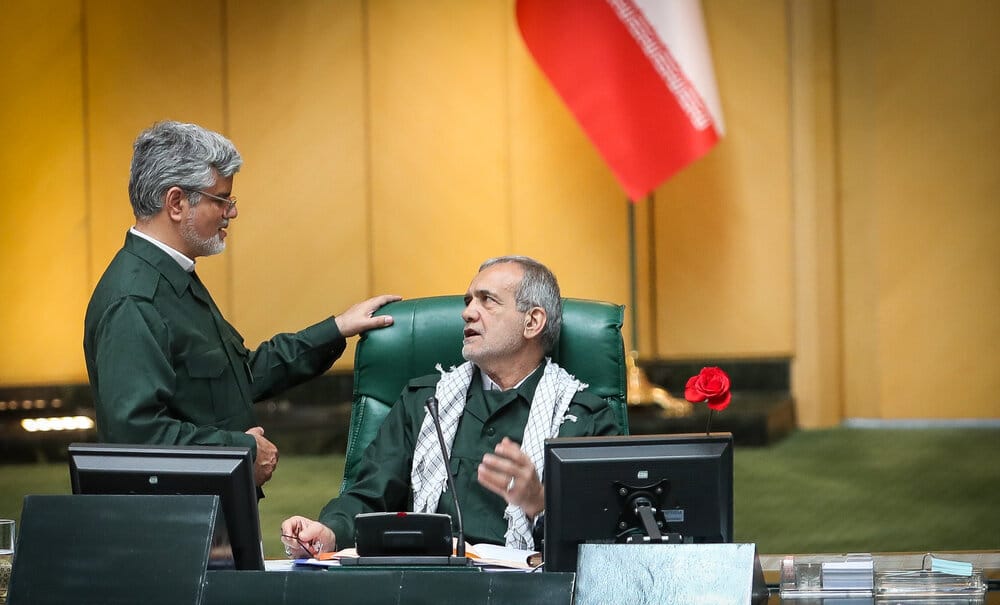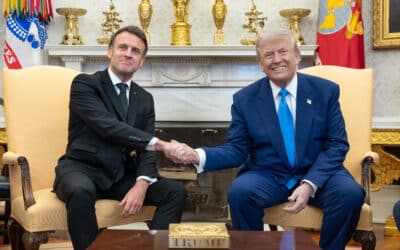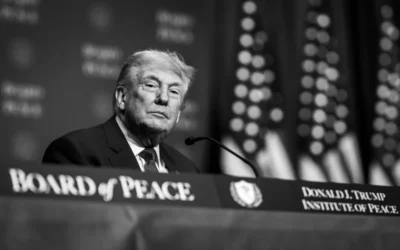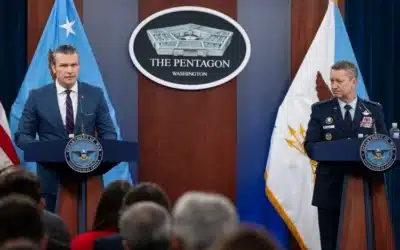The Iranian President explained to the UN General Assembly that Tehran has no plans to weaponize its civilian nuclear energy program following Israel’s unprovoked war in June.
“I hereby declare once more before this assembly that Iran has never sought and will never seek to build a nuclear bomb,” President Masoud Pezeshkian said Wednesday. “The one disturbing peace and stability in the region is Israel, but Iran is the one that gets punished.”
The Islamic Republic has a fatwa against any kind of nuclear, chemical, or biological weapons. Prior to the war against Iran in June, Tehran’s nuclear energy was under strict inspection by the International Atomic Energy Agency (IAEA). Following a massive bombing campaign by the US and Israel, Tehran expelled the inspectors.
Iran signed an agreement with the IAEA earlier this month to resume inspections. However, Tehran said the implementation of the agreement depended on France, Germany, and the UK (the E3) not reimposing “snapback sanctions” on Iran.
On Friday, the UN Security Council voted to place the snapback sanctions on Iran. The snapback mechanism was implemented by the 2015 Iran Nuclear Deal. Under the agreement, international sanctions on Iran were lifted in exchange for Tehran placing limits on its nuclear energy program.
However, the members of the UN Security Council could vote to reimpose the sanctions.
During his address to the General Assembly, Pezeshkian said,”[The E3] falsely presented themselves as parties of good standing to the agreement, and they disparaged Iran’s sincere efforts as insufficient.”.
Trump unilaterally withdrew from the Iran Nuclear Deal in 2018. At the time, the IAEA certified that Tehran was complying with the agreement. In response to US sanctions and Israeli assassinations of nuclear scientists, Tehran removed the limits on its civilian nuclear program that were imposed by the JCPOA.
Israel has an undeclared and uninspected nuclear weapons program. Tel Aviv officially maintains a policy of ambiguity, neither confirming nor denying its nuclear stockpile. Israel is estimated to have between 90 and 400 nuclear warheads.
Washington also does not recognize Tel Aviv’s nuclear weapons program. The Glenn Amendment requires the US to sanction countries that test or possess a nuclear weapon outside of the Non-Proliferation Treaty.
If the US recognized Israel as a nuclear-armed state, it would have to stop sending military aid. The United States provides Israel with at least $3.8 billion in annual military assistance.

































